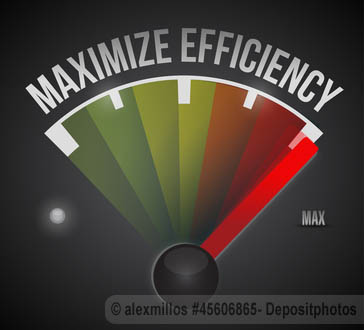Communication in business with Virtual Assistants: Learn from behind the scenes of two employers outsourcing their work to overseas Virtual Assistants!
Communication in Business
Reader Interactions
Communication In Business With VAs
Insider Knowledge from an Interview with Eric

Eric and I had an info-packed Skype call where we discussed the ins and outs of efficient communication in business with your Virtual Assistants.
Eric
- teaches the piano,
- uses the same website and business building system as I
- and works with virtual assistants.
We decided to share this interview with you, so that you can learn from our experience. It is divided in sections by topic. Feel free to scroll down and read about the
Communicate with your Virtual Assistant effectively

If you start outsourcing without knowing how to communicate with your VAs the right way, your efforts may fail! How you communicate with each other will build or break your business.
We share in the first part of this interview our insights about effective virtual assistant communication – as well as…
- pitfalls,
- productive habits
- and trust building steps
Maximize the results of your VAs

The best imaginable Virtual Assistant is one who thinks, works and is motivated like a better clone of yourself. Just one that has more time and procrastinates less.
In the interview, we discuss how to get closer to that perfect administrative virtual assistant – without paying big bucks.
Hint: it’s about
- Finding the right fit for you – and knowing how to find that
- Being as honest with your VA as he should be with you
- The right ongoing training and feedback
Ongoing work revisions to reach your goals

At the beginning, you will not quite be at this perfect state with your VA. He will have to re-work his work to adapt to your expectations.
Not to say your VA will do a bad job. That’s not often the case if you instruct him right. But to find the way “you like it” he will need time to adapt to you.
In order not to get too expensive, it makes sense that you discuss the terms of the training period. For me, it is always paid working time.
However, negotiating work revisions with your virtual assistant makes business sense. And saves you money and/or time.
Learn from your assistant

If you think you are the one with all the knowledge and your assistant is the “trainee” without any experience – you risk missing some of the hidden good stuff that comes with having a VA.
Your VA will surprise you with his experience, if you encourage him to give you his honest feedback. This is a tricky skill to master.
But as we go through this part of the interview, Eric and I discuss the fine details of how to maximize giving feedback back and forth.
Tell your VA what you want with maximum efficiency

When you have a VA, you will soon see that you need to discuss many detailed things with him. Email communication can be tedious and easy to misunderstand.
Years of experience working with Vas have taught me that recording your screen with audio is, by far, the most efficient way to talk to your VA.
It’s
- Independent from time zone differences (better than using Skype),
- Faster than email
- And can be reviewed as often as needed by your VA.
Especially with freshly-hired VA’s, you will see it’s the best for establishing trust and giving you an approachable voice.
Kick-Start with a newly hired VA

Now we talk about getting started with a virtual assistant.
Hiring an affordable VA from Asian cultures (not a professional VA for 50$/hour from the US) comes with its challenges.
- The biggest one at the beginning is breaking the ice and building trust.
- On the other hand, you need to know the strengths and weaknesses of your VA as fast as possible.
Only then you can make the right decisions for your business going forward.
Increase Productivity of your VA with the right communication channels

Optimizing your virtual assistant communication channel can improve the output you receive from your VA.
On the other hand, screening your assistant too closely, or giving him the impression that you scrutinize his every move can put too much pressure on your assistant.
Each VA is different.
- Some, if not most of the VAs will greatly appreciate the advantages of modern software supported global communication in business matters.
- Some will need more encouraging and positive feedback to make sure they don’t feel too much pressure.
Listen to what your VA is telling you – it will help your business

In this next interview part, Eric and I discuss the importance of being open to the concerns of your VAs.
Sometimes, the expectations of your VA and you, the employer, will be different. It’s important to have an open ear for suggestions and feedback. This will also make it easier to improve
- the communication with
- and the results of
your VAs.
Sending big files to your Virtual Assistant

Don’t clog up your email outbox and your VA’s inbox. There are more efficient tools to share and update big files with your VA.
Time is money. Don’t waste your money on waiting for the file transfer of bigger files.
This is especially useful as sometimes VAs from eastern Asian countries don’t have the fastest internet connections (due to weather etc.).
The video recordings from your instructions are good examples of such big files. They make talking with your VA easier.
Start with easy tasks for your new VA

It’s easy to overwhelm a new virtual employee with tasks that are
- too many
- too complicated.
In the next part of this interview, Eric and I discuss how to set up initial tasks efficiently, without confusing your VA.
And we stress the importance of positive feedback loops with your new VA.
Firing someone is hard – but necessary if the assistant is not the right fit for you

Next, we talk about an aspect of outsourcing that is no fun, but sometimes necessary. And it gets talked about much too little. It’s about firing a VA in a human and professional way – if the VA doesn’t fit your business.
Especially when you start out with outsourcing, it’s very easy to get emotionally attached to “your” VA too early.
Hiring and firing is closely connected, when it’s about screening for the right assistant to keep long-time.
Full-time VA or hourly based VA – what’s the better choice?

Now that you followed the interview far enough to imagine having found the perfect assistant – what’s missing?
A decision: is your assistant a
- full time, 40hrs a week working VA?
- project based, hourly paid VA?
There’s much difference between both of them, both in regards to long term gains and involvement levels.
The discussion discusses the ins and outs of part-time vs. full-time virtual assistants – but the one lesson you must keep in mind is:
Both types of VAs have their place, advantage and uses for your business. There’s no one-stop solution for every situation.
Getting serious: starting steps with a full-time VA choice?

Eric works more with project based VAs, and I have started to work with a full-time VA from the Philippines. In case you choose to go with a full-time virtual assistant, there are lessons to be learned in our interview to avoid wasting time and money during the
- screening for
- training of
- communicating with
your full-time VA.
Scaling up: best practices for handling a team of virtual assistant

Handling more than one VA is more of a challenge than you think. Follow Eric’s and my advice of how to best take control and reap the full rewards of a team of virtual assistants.
My best advice:
“Start out with one assistant who knows you well, and let him support you with training any new assistant coming into your team!”
If you are working with a flexible team of VAs, and need one place to manage them and your projects well, there is one tool I recommend from experience. It can be used with the lean management philosophy, and is at the same time very intuitive. And last but not least, it’s a free tool.
Check out our review of using Trello to manage a team of VAs.
Leave advanced work to short term hired specialists

What do you do when you have a challenging job to outsource that needs specialists?
It’s sometimes much too expensive to train a full-time general VA to do a specialist’s job.
Sometimes, just hiring someone who has mastered a skill set (e.g. creating a video professionally) for an increased hourly rate. Or for a project-based fixed price.
(Please also see a discussion about fixed price vs. hourly rate on my preferred outsourcing platform)
Did you follow up to here?
Congratulations!
Your thirst for knowledge will reward you with great results!

In the final parts of this interview, we digress a bit on a tangent. But for the sake of completeness, I kept the transcripts anyways. If you have the same questions, this might be of some use.
First, we brainstorm a bit about using YouTube videos to promote our businesses, and how this can be supported with the help of our Virtual Assistants. Also, YouTube can be a great resource to train your assistants new skills!
Just think about the huge number of great instructional videos on this platform alone.
Later, we discuss how to best analyze traffic stats and Google Analytics from YouTube related traffic.
Mastering making the best of your existing traffic is your job, not your VA’s!
How To Train An Administrative Virtual Assistant To Have Exceptional Organizational Skills
Administrative virtual assistant is part-2 of an interview with Eric, a fellow entrepreneur interested in outsourcing his work to virtual assistants all over the world.
Follow along to learn from our experience on working with VAs!
Summary:
- Creating an administrative virtual assistant as close as you can to “a second version of you” is possible through training and patience.
- How hiring a virtual assistant for an affordable price can be a breakthrough in your outsourcing efforts.
- Can a written contract affect the ability of your virtual assistant to function well in his field of work?
- Avoid side scamming each other.
Start of the Interview:

Francis
Although this does sound a little bit arrogant, I like this metaphor; a virtual assistant is not magical like a “fairy that swings a wand” and leaves your site perfect. But, the virtual assistant is the closest you can get to cloning yourself. So, think of it: how do you say this stuff for pottery, the material for pottery?

Eric
Clay?

Francis
Clay, yeah. So, think of it, the assistant being clay. If it’s a good assistant who’s willing to learn and adapt to your business and is willing to please you (the employer) he/she is probably open to suggestions and improvement.
And, if you also have a trusting relationship and put lots of effort into training him or her, then the clay metaphor makes that “assistant” as close as you can to a second version of you.
So, when you want to clone yourself because you have to go to your day job and want to continue taking care of your business, you have to put in quite a bit of training into the assistant.

Eric
Right, yeah. And, that’s what I noticed. At first, I thought, okay, I could give my assistant any kind of task and they could sit down and be able do exactly what I wanted them to do without a whole lot of training.
And, that was just totally not the case. It took me, I’d say at least 4 or 5 days to kind of get them to understand exactly what I instructed and get the rapport between the two of us working together well.
And, then after that, it seemed like things started working a lot better as far as communication is concerned and, as far as they (The VA) understands what I wanted and a frequent communication between the two of us to kind of get a lot better.

Francis
Yeah. I think that’s the main reason why a beginner in outsourcing has this sort of assumption. – Actually, I probably have something similar – it’s from the marketing of 5 or 4-hour work week and other stuff like that.
Of course, they want to sell their products so they have to slightly exaggerate it or only tell you the good parts without openly telling you all the bad parts.
And, especially, on my part, I really believe in being super transparent with even the bad parts. So definitely, the good part is that you can hire someone at a very affordable price when you go overseas in some developing countries.
And that’s definitely good and a breakthrough in the mind of many people who are not aware of that.
But, the bad part (sort of), is the amount of training and patience you have to bring up and many people are not ready to bring that to the table.

Eric
Right. I think, for me too was that I didn’t have the necessary funds. I didn’t want to waste a whole lot of money trying to train them. Because, I thought, okay, I’m kind of limited on funds in the first place and if I’m going to take a week of my money to kind of train them, then that’s a week of money that I felt like it was going down the drain.
In reality, that’s investment money that you’re putting back into your business where you’re training that person. Where in the future they will know exactly what they need and what you want a whole lot better and a lot quicker.
Rather than not train them at all or not putting the proper training in place.

Francis
Yeah, I agree. Also, if you put yourself into the shoes of your assistant – I think one of the main fears your assistant obviously has is that he/she will not get paid. That he will be scammed out of his money.
There are lots of scammer employers who do this just because there are masses of virtual assistants that you can try to scam and the other way around is also possible.
But, I think the investment at the beginning especially is really just to set up the communication channels such as:
- share the Dropbox accounts,
- email accounts,
- how to communicate,
- how often they should be reporting
And although this is paid time, this is also a test for the assistant to see if you are paying them.
I strongly believe that many assistants are sort of a little bit not so invested into the relationship from the beginning because they don’t have a written working contract that will guarantee those three months of payment.
Even if they had that—for them, for example, from the Philippines to legally pursue you in the US and vice versa. If they are scamming or damaging your business then just go in hiding, you have no chance.

Eric
I think that was one of the things that I was concerned about. At the beginning, I thought, “Am I going to hire this person and am I going to hire them and they’re not going to be getting any work done? I’m going to pay them and not get exactly what I wanted from them”?
And I noticed that usually 99% of the people that I worked with did an amazing job. They wanted to please me as much as they possibly could. Because, if you think about it that this is their livelihood, it’s their business. It’s the way that they make their money.
In the beginning, I thought, “They’re going to scam me. This is going to be a big rip off and they’re going to take my money and ran off. And I’m not getting any of the stuff that I was asking for.”
But, what I noticed was that every single person that I worked with has been very eager to please and wanted to give me exactly what I was wanting and would go over and above even to give me exactly what it was that I wanted.

Francis
Yeah. This is an experience that you have made especially with VA’s from the Philippines in comparison to other countries or in general?

Eric
Well, I think in general, because I’ve worked with virtual assistants from all over the globe. I worked with some from India, from Bulgaria, from Hungary and different places, and I’ve noticed, for the most part, mostly all of them are very eager to want to give me exactly what I want.
They’ll say, “I will give you as many revisions as you want,” for a particular thing or they’re just very eager and give me exactly what I’m looking for.

Leave a Reply